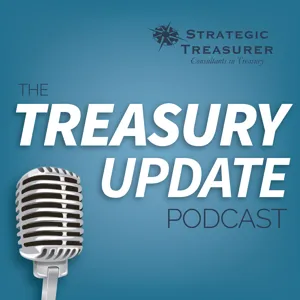Leverage Ratio | Debt to Equity Ratio
Leveraging vs being debt free
This is something that some folks struggle with. You're borrowing to invest.
Are you going to make more in the investment world than you're paying off in your interest?
We advise people on leveraging and whether it is something they should be doing. If it's something you want to talk about, please go to speaktorob.com, and we'll book a free, no obligation consultation call to give you some peace of mind on that topic.
Leveraging is borrowing to invest. The traditional form of leveraging is the form that most people do at one point in their young adult lives.
The first time they buy a house, they end up borrowing to invest in their home.
You're buying a half million-dollar home, but you don't have a half million dollars. Maybe you have $100k, and you put that down as a down payment, and you leverage the other $400k.
That's the first form of leveraging that most people do. The other form of leveraging that we're talking about today is leveraging with your investments.
Full Video & Blog Article on Pension Transfer | Pension Withdrawal
Margin Account
Let’s talk about a margin account. A margin account is a non-registered investment account. It's not an RRSP or a TFSA. You can borrow on the margin that is available on your securities.
Most if not every investment firm will allow you to do this. Interest rates will vary, but you could be as low as prime plus a bit.
You could be as high as prime plus a lot depending on the institution and depending on the amount of leverage that you have.
Let's assume you got a list of securities. The Securities Commission gives us rules and there are compliance rules with respect to how much we can lend off of each security.
Depending on the price of the security, some securities are as high as 70%. Let’s pretend you have $100 worth of security. You could lend up to $70 on that $100 every day.
These shares are marked to market and if the value of the loan is higher than 70% you get what's called a margin call.
You might’ve seen a movie about this, or maybe you've heard of friends losing their entire portfolio by leveraging.
It's not a pleasant situation and many people have been wiped out over time due to margin calls. What ends up happening is you start to get wiped out in a declining market every day.
Your shares are worth less, therefore your loan is worth less, but your actual loan amount hasn't moved.
You need to either put cash into the account or you need to sell securities. If people don't have the cash, they start selling securities the next day the market's down.
This spreads more selling. More selling means lower prices. The stock market is falling, people are getting margin calls which leads to selling securities and eventually there's nothing left in the portfolio.
Full Video & Blog Article on Stock Market Crash | How To Prepare For A Recession
It happened quite a bit in the 80s, and in 2008 there were people wiped out by these margin calls.
If you're going to be doing leveraging on investing through a margin account, first of all, you need to understand how it works. You need to understand margin calls in and out.
You need to understand the value of the loan and that volatility will occur.
The word leverage comes from the French word "Livia" or the English word "Lever", which means you're amplifying the returns and you're amplifying the losses.
I think of a lever teeter-totter that's moving a little bit and on the other side, it moves a ton.
The more leverage you have, the more you will gain or lose. Every percent you lose will equal to losing more when leveraged.
It's basically amping up your portfolio returns one way or the other. You need to understand how that works.
You need to understand how the tax implications of it are, and you need to understand the volatility and know for a fact that you're able to stomach it.
Most people can't do it. However, if you can or if you've done it before and you've experienced it but you still don't know how it works and you want to get it right then we could talk and figure out a way to do it through a margin account.
Typically, what we would suggest for a prudent strategy to someone who wants to leverage and understands how it works is to leverage up as the market falls and leverage down as the market goes up.
Say the market is falling, we would suggest to you that when the market falls during a correction by 5%, you would increase your leverage.
This would be a strategy that some would think would be an optimal way to take advantage of the fact that the market's correcting.
You could borrow money for relatively cheap these days and you can hope to make more than that with your investments.
The neat thing about borrowing on margin like that is that it is a tax-deductible expense for you. If you are a top tax bracket and high net worth individual, then that becomes a tax write off for you.
Hypothetically, the markets are falling, you are adding to your investment portfolio a little bit at a time. I suggest that you set some limits.
You should talk to your advisor and make sure you have limits in your mind as to the maximum amount that you'll ever be leveraged.
I would strongly advise that you not go close to the 70% mark unless you have a ton of cashflow that you can fund your account with if you do get a margin call.
Home Equity Line
Of course, there are other ways to leverage. People have come to me and asked me how do I leverage my home? How do I leverage my cottage?
These are real assets. Now most people strive to be debt free. They want to pay down their debt as quickly as they can. Now this effectively becomes a risk reward scenario.
Paying down your debt fast would be something that would be a peace of mind decision. You don't like having debt. You want to have it off the books and be debt free for life.
Now, if you're of the view that you want to borrow off an asset, one way you could do it would be through a HELOC, a home equity line of credit.
A HELOC is an investment. Basically it's an account that's tied to the value of your home that you can draw on.
Every time money goes into the account, you now have available margin room. You can take that money out and you can put it in your investment account if you'd like.
Every time money goes in, you now have available margin room. Note that your paycheck goes into the same account. Your expenses come out of the same account as well.
If you would do it that way, most people would be leveraged at the same number for a while, with the goal of funding an investment account on the side.
You're paying 3% or 4% on your home equity line and you should ask yourself if you are going to make that number with your investments?
If you think you're going to make at least that number with your investments, then the math makes sense.
The question is can you handle it? Can you stomach the volatility and can you handle the fact that you're not going to be debt free?
There’s also another strategy for leveraging. Let's say you get a windfall either through an inheritance, through the sale of a business or through some sort of cash windfall like a lottery.
One way to effectively reduce your costs of borrowing and increase your leverage while increasing your return would be you take that windfall, pay down your mortgage, so it goes to zero.
Then you borrow either through a conventional mortgage or through a HELOC and then you could place that into the market.
That becomes tax deductible because you are borrowing to invest and that would be another form of being leveraged.
You could do the HELOC, you could do the traditional mortgage or pay the mortgage down like I just taught, which is a kind of modified Smith maneuver. This would allow you to write off the interest.
Additionally, you could do it through your margin accounts or if you're gutsy, you can do it in all of them. You could leverage on top of leverage, on top of leverage.
Please make sure to talk to your advisor before you do that because it's not something for the faint of heart. There’s a lot of volatility and you got to understand the consequences of that.
Additionally, there are now forms of leveraged ETFs that exist in the market. That means you can get a double or quadruple ETF that goes one-way or another based on what happens in the market.
Again, those are not for the faint of heart. Those are short trades only and you really need to understand how they work. If you're ever going to do it make sure to talk to your advisor about that.
A margin account is something that some people do to take advantage when market corrections occur and it can be an effective way to grow your net worth.
If you need advice on leveraging, please go to speaktorob.com, we'd love to chat about this topic with you.
📞 Call us directly at 204-259-2856 to schedule your FREE consultation














